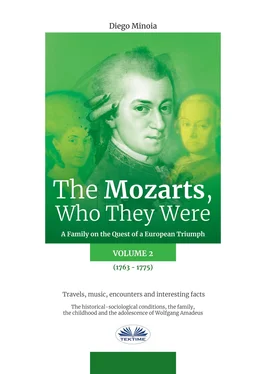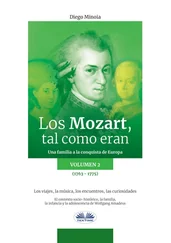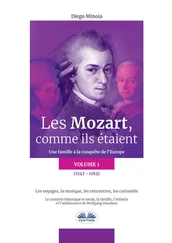Despite the negative moral vision, general but superficial in the upper classes, towards the theater and the theatricals, in the 18th century the love for that world was rampant: everywhere people acted, danced and sang, from Versailles to the great Parisian noble palaces, from the houses of the bourgeoisie to the convents.
Over the course of the century, those who could afford it did not deprive themselves, inside their palace or castle, of a private theater, often of extreme luxury and with hundreds of seats, where all the most illustrious coats of arms of France gathered together. to the high ecclesiastical offices and the most fashionable intellectuals who often, like Rousseau, Corneille and Voltaire, wrote texts for the theater.
In these private theaters, not excluding that of the Court in Versailles, the aristocrats also performed and, in some cases, demonstrating certainly remarkable vocal and recitative talents.
The three Royal Theaters
It all began with Louis XIV, the Sun King, who, inspired by the Italian Academies existing since the Renaissance, decided to establish in France, in 1661, the Royal Dance Academy (an art he practiced being himself the protagonist of several ballets that he staged in Versailles for the Court, with the music of his resident musician, the Florentine Giovan Battista Lulli, who with the well-known French chauvinism was immediately naturalized and renamed Jean-Baptiste Lully).
This was followed in 1669 by the Royal Academy of Music, later simply called Opéra.
The third protagonist of the Maison du Roi, the House of the King, which was entrusted with the entertainment of His Majesty, dates back to 1680 with the foundation of the theater company of the Comédie-Francaise, the comedians of the King to whom the actors of the Comédie were counterbalanced. Italienne (and what battles arose to defend French privileges from the cravings of Italian comedians).
Authors and Actors
As also Wolfgang Mozart was able to verify through his own experience on the occasion of the composition and rehearsal of his melodramas, the actors (and above all the prima donna) could play the good and the bad ordeal by refusing to sing the arias that in their opinion did not enhance their voices or by asking to add new ones to better highlight their role in to the detriment of / the rival etc.
Even in France the situation was not dissimilar, at least until the time when Gluck, thanks to his artistic "weight" of European level and the times that were progressively changing in favor of composers and authors, was unable at least in part to contain and trim, not without difficulty, the claims of the stars.
The authors of the literary texts of tragedies or comedies represented in Parisian theaters were often not paid or, if they managed to agree on a small percentage on the proceeds of the plays, they were regularly cheated by the directors of the companies who falsified the revenue figures by inflating the expenses.
It is true that a Royal Decree of the end of the 17th century had established that the authors would have to pay a fee equal to one ninth of the collection for the texts in five acts and one twelfth for those in three acts, net of management costs of the theater.
This decree was never applied.
Even the directors of the theaters put up absurd clauses for which if a theatrical work did not reach a certain income in two or three consecutive performances, the rights of the text passed to the company, which could have staged it at will without paying a cent to the author.
The company of the Italian Theater, however, from 1775 decided to continue to pay for the work of the authors, which caused a flow of writers who, leaving the Comédie-Francaise, offered their works to Italians.
The earnings of the actors
The income of the most famous actors, singers and dancers underwent, during the eighteenth century, considerable increases: from the 2,000 annual livre (which in the mid 18 thcentury allowed a dignified but certainly not brilliant life) soon reached figures 10/20/30 times more, not counting the gifts from admirers and lovers.
The great artists thus began to "keep a parlor" by hosting nobles and intellectuals at their tables, spending enormous sums to feed their guests every day and to sumptuously furnish the palaces, which began to compete for luxury with those of the great aristocracy.
One of the major items of expenditure, especially for the artists, were the stage costumes that for almost the whole of the 18 thcentury were not dissimilar from those in fashion in the contemporary world (in spite of the eras represented in the tragedies, where the "Arianne" mourning the abandonment of Theseus with clothes equipped with farthingdales 150 centimeters wide or the "Didone Abandoned" showed charming red-heeled shoes).
The value of only the theatrical costumes of the actress Raucourt amounted to 90,000 livre, even poor if we compare them to the 4,000 pairs of shoes and 800 dresses that occupied the wardrobe of the actress Hus in 1780.
And then diamonds, carriages and horses, servants that exceeded ten units, fine furniture, palaces (even two or three, often received as a gift from lovers).
In terms of comparison, let's say that the actors of the theaters of the fairs, often no less good, could earn in the same seasonal periods around 5,000 livre per year.
When they were asked to perform abroad (admitted and not granted that the permission to leave France was recognized) they were no less greedy, as in the case of the singer Caterina Gabrielli who asked for 5,000 Ducats from Catherine II of Russia.
To her assertion that she didn't even pay her generals that much, the singer replied: "Then let them sing."
The "spirit" of the time
Having "esprit and savoir vivre", spirit and refinement, was absolutely essential to attend the beautiful French society of the 18 thcentury and it is no surprise that the young Mozart when he was in Paris, alone with his mother during the second attempt to break through in France, could not be accepted by an acolyte of rich, bored and snobbish people who, after having applauded him, made him wait for hours in the hall in the cold before receiving him.
Moreover, his "esprit" and his "savoir vivre" did not always prove to be up to the rituals and conveniences deemed worthy of a gentleman. Being fashionable also meant knowing "where" to go and "when" to go, on the "right" days. For example, it was considered elegant to show up at the Comédie-Francaise on Mondays, Wednesdays and Saturdays.
The shows at the theater began at 5.30 pm and ended at 9 pm (if some actress or dancer did not arrive late or did not throw a tantrum by delaying the shows for hours) and generally presented two titles: a first more important show called "grand pièce" and a second show called “petite pièce”.
To advertise their shows, the theaters had posters posted in the streets of the city with personalized colors: yellow for the Opéra, red for the Comédie-Italienne and green for the Comédie-Francaise.
Just as an example, to show the style of thought considered brilliant at the time, here are some jokes of the famous singer Sophie Arnould handed down to posterity.
Meeting the poet Pierre Joseph Bernard, known to always be very condescending and complimenting to everyone, asked what he was doing sitting under a tree. At the poet's reply "I entertain myself" she managed to find a lightning-fast comment warning him with the words "Be careful because you are chatting with a flatterer".
At the news that the satirical writer Francois Antoine Chevrier, author of poisonous pamphlets against the malpractice of the theatrical world, had died, Arnould exclaimed "He must have sucked her pen!".
Artists in prison
We have seen how the most famous artists behaved, on stage and in life, often over the top, not to say decidedly arrogant and disrespectful even towards the King and the highest courtiers.
Читать дальше












